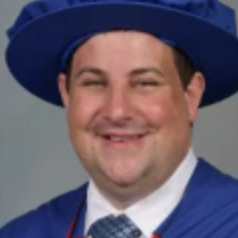
Cameron Anderson
Adjunct Senior Lecturer, La Trobe Rural Health School, La Trobe University
Less ![]()
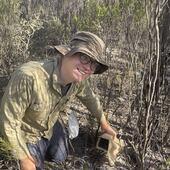
Cameron Dodd
PhD Student in Evolutionary Biology and Taxonomy, The University of Western Australia
Less ![]()
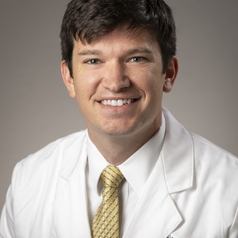
Cameron Gettel
Assistant Professor of Emergency Medicine, Yale University
Cameron Gettel, MD, MHS is an Assistant Professor in the Department of Emergency Medicine, a Clinical Investigator at the Yale Center for Outcomes Research and Evaluation, and the Co-Director of the Yale Emergency Scholars (YES) Fellowship. Dr. Gettel aims to advance the understanding of emergency department care transitions in the growing geriatric population through the identification and development of patient- and caregiver-reported outcome measures and then to design, implement, and validate innovative care transition strategies and interventions to improve clinical outcomes.
Less ![]()
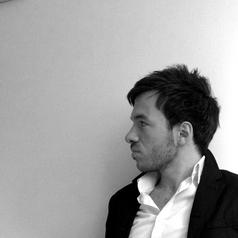
Cameron McEwan
Associate Professor in Architecture, Northumbria University, Newcastle
Cameron McEwan is an associate professor, architectural theorist, and educator at Northumbria University School of Architecture. He is Head of Equality Diversity Inclusion at Northumbria University Department of Architecture and Built Environment and Design Research Lead for the Architecture Unit. Prior to joining Northumbria in 2022, Cameron led the architecture theory research cluster and was Research Environment Lead for UoA32 for REF2021 at University of Central Lancashire. In 2011 Cameron was founding member of the AE Foundation, an independent research institute for architecture and education. Cameron’s research focuses on the relationship between architectural typology, representation, and subjectivity to engage critical approaches that address the urban/Anthropocene pressure. He employs close-reading, montage, and close-drawing as design research tools to investigate ideas, drawings, texts, and projects. Those research interests and critical approaches cross over into teaching theory, tectonics, and design.
Cameron holds a Masters in Architecture with distinction from University of Dundee School of Architecture and PhD in History and Theory of Architecture from the University of Dundee Geddes Institute for Urban Research with a thesis on Aldo Rossi’s Analogical City. Cameron has held research fellowships with the Society of Architectural Historians of Great Britain (SAHGB) (2018), University of Edinburgh Scottish Graduate School for Arts & Humanities (SGSAH) (2014), and as University of Dundee Geddes Fellow for Doctoral Studies (2009–14).
Cameron has led design studio and theory programs at institutions including: Northumbria University, University of Central Lancashire, Dundee School of Architecture, Edinburgh Napier University School of Arts, Wuhan School of Architecture, and Hong Kong VTC Architecture. Cameron has been invited speaker at IUAV Venice, TU Dresden, TU Graz, Manchester MMU, Glasgow Mackintosh School of Architecture, The Cooper Union New York, and elsewhere. He sits on the Editorial Review Board of the Quartile 1 journal Archnet-IJAR, the Design Research Society, and the College of Reviewers for UKRI.
Cameron’s work is published internationally in peer-reviewed and critical practice journals and venues including: Archnet-IJAR, Architecture and Culture, arq: Architectural Research Quarterly, Drawing On, Graz Architecture Magazine, Journal of Architectural Education, Lo Squaderno, MONU, Scroope: Cambridge Architecture Journal, Outsiders for the 2014 Venice Architecture Biennale, and elsewhere. Cameron’s editorial projects include, with Samuel Penn, Accounts (Pelinu, 2019); with Lorens Holm, Architecture and Collective Life for a special double issue of Architecture and Culture (Taylor & Francis, 2020); and with Nadia Bertolino and Cristina Mattiucci, Care and Critical Action for a special issue of the open access independent journal Lo Squaderno (Professionaldreamers, 2023). Cameron’s book Analogical City is forthcoming (Punctum, 2023).
Cameron is Principal Investigator on the Northumbria University funded project Peripherocene (2023), which investigated the corollary between Anthropocenic forces and the production of peripheral urban space. With Andreas Lechner, Cameron leads the international network, Peripheries.
Less ![]()
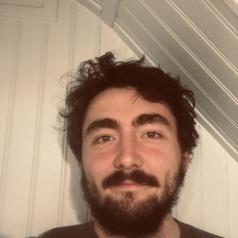
Cameron Morin
Docteur en linguistique, ENS de Lyon
Recherches à l'interface de la linguistique cognitive et la sociolinguistique.
Less ![]()
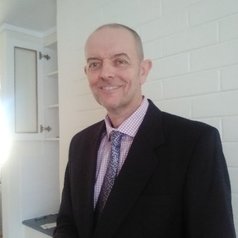
Cameron Shackell
Visiting Fellow, Queensland University of Technology
Dr Cameron Shackell completed his undergraduate degree in Economics at UQ, his Master of Letters in Applied Linguistics at ANU, and his PhD in Semiotics and Information Technology at QUT. He is currently a Visiting Fellow at the QUT School of Information Systems and works in the private sector as CEO of GeneriTrend, a firm using AI to quantify brand and trademark genericness. His research interests include semiotics, artificial intelligence, data science, branding and marketing, trademark evidence, and the economics of intellectual property. He writes for World Trademark Review and Brandingmag.
Less ![]()
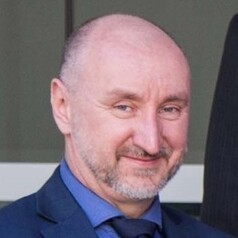
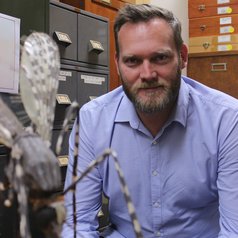
Cameron Webb
Dr Cameron Webb is a Clinical Lecturer with the University of Sydney and Principal Hospital Scientist with the Department of Medical Entomology at Pathology West - ICPMR Westmead (NSW Health Pathology & Westmead Hospital). Cameron's primary focus is understanding the role of environmental management and urban development in reducing the risks of mosquito-borne disease caused by Murray Valley encephalitis virus, Ross River virus and Barmah Forest virus. However, he has also been called on to provide expert advice on a range of medically important arthropods, such as ticks, mites, biting midges, bed bugs and flies, to local, state and federal government agencies.
Key to his research is an understanding of the ecological role of mosquitoes and how wetland conservation, construction and rehabilitation projects may influence regional mosquito-borne disease risk together with changes in the local environment resulting from climate change, potential introductions of exotic mosquito species and personal protection strategies (e.g. insect repellents).
In his position with the University of Sydney, Cameron regularly provides lectures in a range of undergraduate and post graduate courses and has supervised a number of research students including collaborative projects with the University of Western Sydney, the Australian Catholic University and the University of South Australia.
Less ![]()
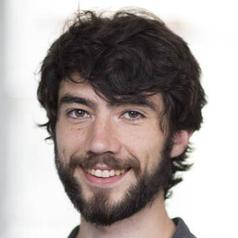
Cameron Robert Jones
Cameron Jones is a PhD Student in Cognitive Science at UC San Diego. His work focuses on how human beings use their embodied experience with the world to understand language and whether artificial models could understand language in a human-like way. He runs experiments that compare the way in which humans and language models respond to sentences that are theorised to require embodied experience to understand: for example, sentences about physical events, affordances, or social interactions. To the extent that human responses can't be predicted by text-only language models, these experiments suggests that human comprehenders are drawing on experience that goes beyond language alone.
Less ![]()
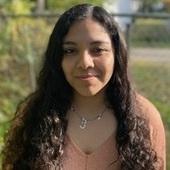

Camila Kümmel Duarte
Professor do Departamento de Nutrição, Universidade Federal de Minas Gerais (UFMG)
Professora Adjunta do Departamento de nutrição da Universidade Federal de Minas Gerais (UFMG). Professora Permanente do Programa de Pós-Graduação Nutrição e Saúde (UFMG). Professora na Residência Multiprofissional do Hospital das Clínicas da UFMG, na área de Saúde Cardiovascular. Graduada em nutrição pela Universidade Federal do Rio Grande do Sul (UFRGS). Doutora em Endocrinologia pelo Programa de Pós-graduação em Ciências Médicas: Endocrinologia (UFRGS).
Less ![]()
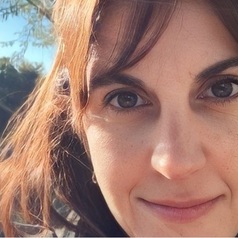
Camila M. Romano
Pesquisadora, Faculdade de Medicina da USP (FMUSP)
Graduada em Biologia pela Universidade Presbiteriana Mackenzie (1999), mestre e doutora em Ciências pela Universidade de São Paulo (USP). Atualmente é Pesquisadora Científica nível VI do Laboratório de Investigação Médica do Hospital das Clinicas da FMUSP (Virologia) e Instituto de Medicina Tropical. Tem experiência nas áreas de Biologia Molecular, análise de sequências e Filogenia de vírus. Se interessa pelos processos de evolução e dispersão dos vírus de RNA. Tem mais de 100 artigos científicos na sua área de atuação publicados em jornais científicos internacionais e nacionais.
Less ![]()
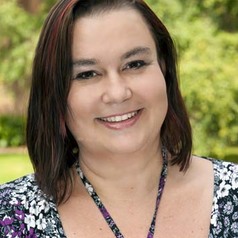
Camilla Baasch Andersen
Camilla has been a professional academic in Commercial Law for almost 20 years, starting as a Resarch Fellow at University of Copenhagen, where she obtained her initial law degree (Cand Jur). She has held posts at Queen Mary, University of London, University of Leicester and visiting posts on three continents. She has published extensively on comparative commercial law, international sales (CISG) and commercial arbitration. For more information, see her webste at: http://www.uwa.edu.au/people/camilla.andersen
Less ![]()
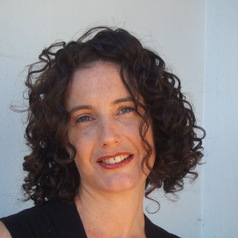
Camilla Nelson
Camilla Nelson lectures in Media and Communications at the University of Notre Dame Australia, and specialises in fiction and non fiction writing, adaptation and history in popular culture. Previously she was a lecturer in the Creative Practices Group at UTS. In addition to a range of scholarly and other essays, she is also a published novelist. Her work includes, Perverse Acts, for which she was named as one of the Sydney Morning Herald's Best Young Australian Novelists of the Year, and Crooked, which was shortlisted in the 2009 Ned Kelly Awards. She is also a former journalist, and has a Walkley Award Best All Media Online News (2001) for her work at the Sydney Morning Herald.
Camilla's work has been recognised through the award of grants from the Literature Board of the Australia Council and the Australian Film Commission. She has served as a judge of the NSW Premier's Literary Awards (2008 and 2012), the Kathleen Mitchell Award (2008 to 2014), the Sydney Morning Herald's Best Young Australian Novelists (2015), and on the governing board of the NSW Writers' Centre (2008-2011).
Her most recent book is a co-edited collection of essays On Happiness, UWA Press, 2015.
Less ![]()
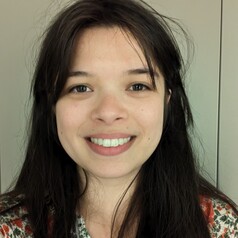
Camille Abada
PhD Candidate, Antibodies, Liverpool School of Tropical Medicine
I am a MRC DTP funded PhD student studying at Lancaster University and the Liverpool School of Tropical Medicine. During my PhD, I aim to engineer novel antibodies to help improve the therapeutic and diagnostic landscape for emerging infectious diseases and neglected tropical diseases, such as snakebite envenoming. I intend to adapt the skills I have gained through various antibody discovery projects to advance the well-being of vulnerable populations worldwide.
Less ![]()
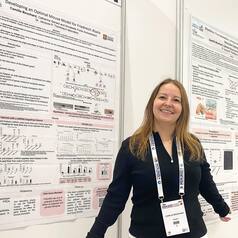
Camille Bouchard
Étudiante au doctorat en médecine moléculaire (correction génétique de maladies héréditaires), Université Laval
Je fais de la recherche sur le traitement de maladies héréditaires, plus précisément sur différents types de dystrophie musculaire et d'ataxie.
Less ![]()
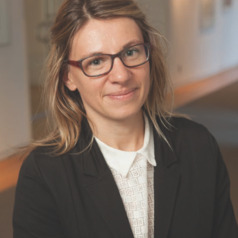
Camille Grange
Associate Professor, Department of Information Technologies, HEC Montréal
Expertise:
Social acceptance of new information technologies
Responsible adoption of new information technologies
Electronic commerce: consumers' information-seeking and decision-making process
Automated decision-making systems
Digital transformation of organisations
Effective use of information technologies
Less ![]()
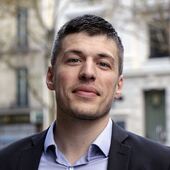
Camille Grenier
Associated Expert at the Technology and Global Affairs Innovation Hub, Sciences Po
Less ![]()
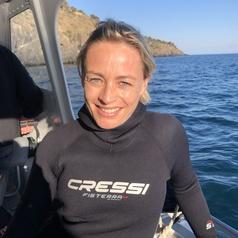
Camille Mellin
Senior Lecturer and ARC Future Fellow, School of Biological Sciences, University of Adelaide
I am a quantitative ecologist with a background in marine and coral reef ecology with strong interests in statistics and ecological modelling.
I am an ARC Future Fellow and a Senior Lecturer at the University of Adelaide, and I lead the Fisheries Modelling sub-program at the South Australian Research and Development Institute.
Less ![]()
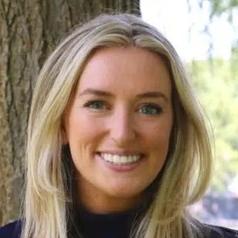
Camille Mumford
Affiliated Professor in Communication Studies, Emerson College
Camille Mumford is the Director of Communications at Emerson College Polling. She is responsible for communicating survey findings to the public, with a comprehensible and transparent approach.
Mumford is an Affiliated Professor at Emerson College where she teaches an undergraduate courses in survey research.
Mumford is a member of the American Association for Public Opinion Research, and serves on the Executive Council of its New England chapter, and the Communications Committee of AAPOR.
Mumford’s primary area of research is related to women in public office, specifically on the differences in legislative and executive office through public opinion surveys and candidate debate content analysis.
Less ![]()
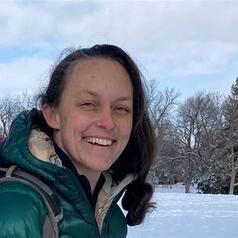
Camille Stevens-Rumann
My research focuses on post-disturbance recovery. Focusing on challenges facing disturbed lands, my research is both basic in understanding species and ecosystem responses to disturbances, and applied for improving future ecosystem management. We use multiple techniques including observational field surveys, geospatial analyses, and experimental approaches.
Less ![]()

Camisha Sibblis
Assistant Professor of Sociology and Criminology/Director of the Black Studies Institute, University of Windsor
Dr. Camisha Sibblis is an Assistant Professor and the Director of the Black Studies Institute at the University of Windsor. She holds a BA in Philosophy from the University of Toronto and pursued her BSW, MSW, and PhD degrees at York University. Prior to her move to the University of Windsor, she was an Assistant Professor of Criminology, Law, and Society and the Associate Director of Belonging, Equity, Anti-Racism and Decolonization for the Inlight Institutional Initiative for Student Mental Health Research at the University of Toronto. Dr. Sibblis has extensive experience working with marginalized children, youth and their families as a school social worker, as a child welfare worker, an expert witness in court, and as a clinician who, in addition to treatment, has authored various types of assessment reports - including Impact of Race and Culture or Enhanced Pre-Sentence Reports. She counseled Black wards of the Children’s Aid Society as a mental health practitioner in private practice; and she is a clinical agent for the Office of the Children’s Lawyer.
Less ![]()
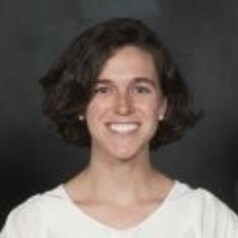
Candelaria Bergero
Ph.D. Student in Earth System Science, University of California, Irvine
I am an interdisciplinary researcher whose mission is to understand both the feasibility of a net-zero pathway, as well as the environmental justice implications of such a pathway.
Less ![]()
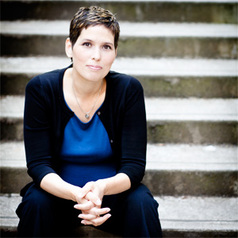
Candis Callison
Associate professor, School of Public Policy and Global Affairs, and Institute for Critical Indigenous Studies, University of British Columbia
Candis Callison is the Canada Research Chair in Indigenous journalism, media, and public discourse and an Associate Professor at the University of British Columbia, jointly appointed in the School of Public Policy and Global Affairs and the Institute for Critical Indigenous Studies. She is the author of How Climate Change Comes to Matter: The Communal Life of Facts (Duke University Press, 2014) and the co-author of Reckoning: Journalism’s Limits and Possibilities (Oxford University Press, 2020). Candis is a member of the Tahltan Nation (located in what is now known as Northern British Columbia), an award-winning former journalist, and a regular contributor to the podcast, Media Indigena.
Less ![]()
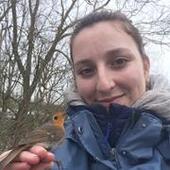
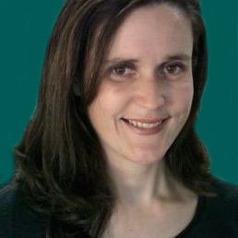
Cara Frankenfeld
Faculty Scientist, MaineHealth Institute for Research (NOT University of Puget Sound), University of Puget Sound
I am faculty member conducting research in epidemiology and biostatistics. My specific areas of expertise are is chronic health conditions in relation to complex exposures (diet, environment, social determinants).
Less ![]()
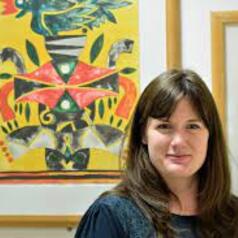
Cara Levey
Senior Lecturer in Latin American Studies, University College Cork
Cara Levey is Senior Lecturer in Latin American Studies at University College Cork. Her work focuses on Memory and Transitional Justice in and beyond the Southern Cone of Latin America. She is a member of the Argentine Observatory, an international collective of academics committed to democracy and human rights in Argentina.
Less ![]()
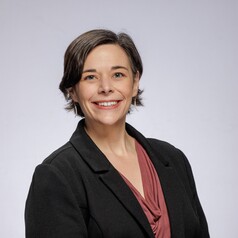
Cara Ocobock
Assistant Professor of Anthropology, University of Notre Dame
Dr. Ocobock is the Director of the Human Energetics Laboratory at Notre Dame. Her research program integrates human biology and anthropology, with a focus on the interaction between anatomy, physiology, evolution, and the environment. She explores the physiological and behavioral mechanisms necessary to cope with and adapt to extreme climate and physical activity. Ocobock works in northern Finland, in collaboration with researchers from the University of Lapland and University of Oulu. This project focuses on reindeer herders, a highly active cold climate population. Her research assesses their life ways, life history patterns, cold climate adaptations, and addresses potential health disparities. This work was funded by the National Science Foundation and the American-Scandinavian Foundation. One aspect of this work focuses on brown adipose tissue, a type of fat that burns only to keep an individual warm when cold and leads to a known increase in metabolic rate – the number of calories you burn each day. Brown fat has important implications for not only understanding cold adaptations now and throughout human evolution, but also for metabolic health and the treatment of obesity.
Less ![]()
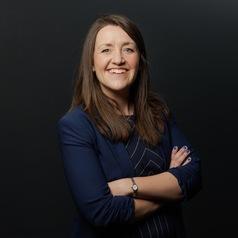
Cara Reed
Senior Lecturer in Organisation Studies at Cardiff Business School, Cardiff University
Cara Reed is a Senior Lecturer in Organisation Studies at Cardiff Business School, Cardiff University. She has currently published her work on experts, professions, identity construction and discourse in the likes of Organization Theory, the British Journal of Management, and Management Learning. In 2023-4, she will be guest editing a special issue of Organization with Alexandra Bristow from the Open University, Thomas Lopdrup-Hjorth from Copenhagen Business School and Gabriela Spanghero Lotta from Fundação Getulio Vargas (FGV) Brazil, on the topic of ‘Expert Futures? Re-examining the role of experts and expertise in organizations and organizing.’ She is a member of the Learned Society of Wales Early Career Researcher Network, the British Academy of Management, as well as being Social Media Editor at Management Learning.
Less ![]()
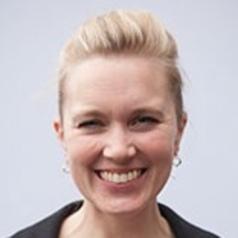
Cara Wall-Scheffler
Professor and Chair of Biology at Seattle Pacific University and Affiliate Assistant Professor of Anthropology, University of Washington
My main research interest focuses around evolutionary tradeoffs throughout the human lineage. I am especially interested in the tradeoffs inherent in the mobility strategies of extinct and extant populations, and how populations balance access to resources, thermoregulation and reproduction. I am particularly focused on the role of sexual dimorphism and sex differences in physiology as they relate to differences in male and female resource acquisition strategies. To better understand tradeoff strategies, I integrate biomechanics, locomotor energetics, telemetry physiology, paleontology, archaeozoology and behavioral ecology.
Less ![]()
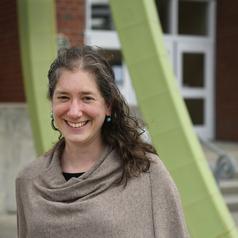
Cara Elizabeth Furman
Associate Professor of Early Childhood Education, Hunter College
Cara E. Furman, PhD, is an associate professor of early childhood education at Hunter College as of Spring 2024. She is author of Teaching from an Ethical Center: Practical Wisdom for Daily Instruction (2024), co-author of Descriptive Inquiry in Teacher Practice: Cultivating Practical Wisdom to Create Democratic Schools, co-editor of Teachers and Philosophy: Essays from the Contact Zone (2025). She is the host of the podcast Teaching from an Ethical Center: An Inquiry Among Friends and Co-Host of Thinking in the Midst. She is passionate about ethical teacher development as it intersects with inquiry, asset based inclusive teaching, and progressive literacy practices.
Less ![]()
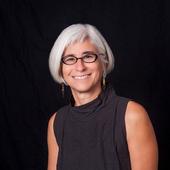
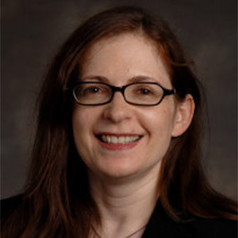
Caren Morrison
Caren Myers Morrison, associate professor of law, teaches Evidence and Criminal Procedure. She served as an assistant U.S. attorney in Eastern District of New York from 2001 to 2006, where she prosecuted international narcotics traffickers and organized crime. Her research focuses on the impact of electronic information on the criminal justice system and on mechanisms of jury selection.
Morrison graduated from Columbia Law School, where she was a James Kent Scholar (1996-97), a Harlan Fiske Stone Scholar (1994-96), and a notes editor of the Columbia Law Review. After graduation, she clerked for U.S. District Court Judge Eugene H. Nickerson of the Eastern District of New York and for Judge John M. Walker Jr. of the U.S. Court of Appeals for the 2nd Circuit. From 2006 to 2009, she was acting assistant professor at New York University School of Law. Before law school, Morrison trained as a journalist at London’s City University and worked as freelance journalist in London for seven years.
Morrison’s most recent article, “Negotiating Peremptory Challenges,” forthcoming in the Journal of Criminal Law and Criminology, proposes a system of negotiated consent to supplant the regime of regulating peremptory strikes through the framework established under Batson v. Kentucky. Her previous articles have explored the impact of the Internet on the functioning of the jury, the interplay of Facebook and the Fifth Amendment, the ways in which online access to court records affects prosecutorial accountability and the use of drones for domestic surveillance. Her articles have been published in the Vanderbilt Law Review, the Hastings Law Journal, the California Law Review Circuit and the Columbia Law Review Sidebar.
Less ![]()
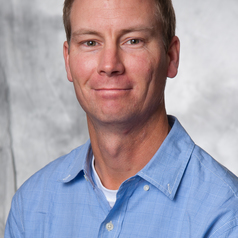
Carey King
Dr. Carey W King is the Assistant Director of the Energy Institute at the University of Texas Austin.
He performs interdisciplinary research related to how energy systems interact within the economy and environment as well as how our policy and social systems can make decisions and tradeoffs among these often competing factors. The past performance of our energy systems is no guarantee of future returns, yet we must understand the development of past energy systems. Carey’s research goals center on rigorous interpretations of the past to determine the most probable future energy pathways.
He has both a B.S. with high honors and Ph.D. in Mechanical Engineering from the University of Texas at Austin. He has published technical articles in the academic journals Environmental Science and Technology, Environmental Research Letters, Nature Geoscience, Energy Policy, Sustainability, and Ecology and Society. He has also written commentary for Earth magazine discussing energy, water, and economic interactions. Dr. King has several patents as former Director for Scientific Research of Uni-Pixel Displays, Inc.
Less ![]()
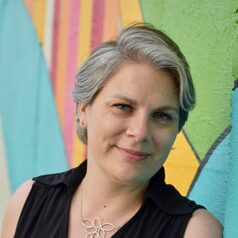
Cari Babitzke
Lecturer of History, Boston University
Cari Babitzke specializes in 20th century US history with a focus on firearms politics. Her research and teaching investigate the changing landscapes of US media, protest politics, and political history.
Her dissertation explored the development of the gun rights movement and the NRA’s role as a foundational element of the modern American Right.
Babitzke’s work has been featured on the Washington Post’s “Made by History” blog. She has also appeared on C-SPAN and as a guest on the “This Day in Esoteric Political History” podcast.
Less ![]()
- Market Data





















